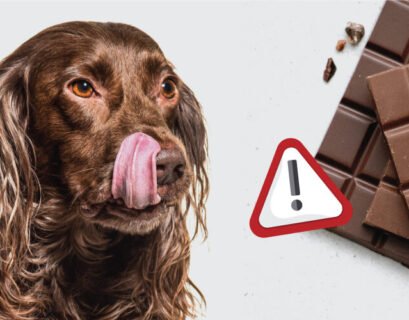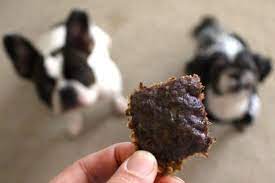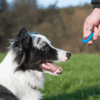Can Dogs Eat Sugar Cane? A Comprehensive Guide
Sugar cane is a tall grass that grows in tropical and subtropical regions of the world. It is one of the most important crops and food sources for humans, as it produces sugar, molasses, ethanol, and other products. Sugar cane is also a natural and sweet treat that many people enjoy, either as a snack or a juice. But what about our canine friends? Can dogs eat sugar cane? The answer is: it depends. Sugar cane can have some benefits for dogs, but it can also have some drawbacks. In this article, we will explore the different aspects of sugar cane for dogs, and how to choose the best treat for your pup.
The Benefits of Sugar Cane for Dogs
Sugar cane can provide some benefits for dogs, as it contains some vitamins, minerals, antioxidants, and fiber that can support their health. Some of the benefits of sugar cane for dogs are:
- Dental health: Sugar cane can help with dental health, as it can act as a natural toothbrush and floss for dogs. Chewing on sugar cane can remove plaque and tartar from the teeth, and stimulate the gums and saliva production. This can prevent dental decay, bad breath, and gum disease in dogs. However, you should still brush your dog’s teeth regularly and visit your vet for dental check-ups.
- Digestion: Sugar cane can help with digestion, as it can provide some fiber and water for dogs. Fiber can improve the bowel movements and prevent constipation and diarrhea in dogs. Water can hydrate the body and prevent dehydration and kidney problems in dogs. However, you should still provide fresh and clean water for your dog at all times and avoid feeding too much fiber, as it can cause gas and bloating in dogs.
- Hydration: Sugar cane can help with hydration, as it can provide some natural and refreshing juice for dogs. Sugar cane juice can quench the thirst and replenish the electrolytes in dogs, especially in hot and humid weather. Sugar cane juice can also boost the energy and metabolism in dogs, as it contains some natural sugars and carbohydrates. However, you should still limit the amount of sugar cane juice for your dog, as it can also contain some calories and sugar that can cause weight gain and diabetes in dogs.
Some examples of how to feed sugar cane to dogs safely and moderately are:
- Peel the sugar cane and remove any dirt or debris from the surface.
- Chop the sugar cane into small and bite-sized pieces that are easy for your dog to chew and swallow.
- Give your dog one or two pieces of sugar cane as a treat, not as a meal replacement.
- Monitor your dog’s reaction to sugar cane and stop feeding if they show any signs of distress, such as choking, vomiting, diarrhea, or itching.
- Juice the sugar cane and strain the pulp and fibers from the liquid.
- Give your dog a small amount of sugar cane juice, about a tablespoon or two, as a treat, not as a drink replacement.
- Dilute the sugar cane juice with water or ice to reduce the sugar and calorie content.
- Store the sugar cane juice in the refrigerator and use it within a day or two.
The Drawbacks of Sugar Cane for Dogs
Sugar cane can also be harmful or dangerous for dogs, especially in large amounts or raw forms. Sugar cane can cause some problems for dogs, such as:
- Choking: Sugar cane can cause choking, as it can be hard and fibrous for dogs to chew and swallow. If your dog bites off a large piece of sugar cane, it can get stuck in their throat and block their airway. This can cause coughing, gagging, drooling, and difficulty breathing in dogs. If your dog chokes on sugar cane, you should try to remove the obstruction with your fingers or a pair of tweezers, and perform the Heimlich maneuver if necessary. You should also contact your vet immediately for further assistance.
- Intestinal blockage: Sugar cane can cause intestinal blockage, as it can be indigestible and accumulate in the stomach or intestines of dogs. If your dog eats too much sugar cane, it can form a mass that can obstruct the normal passage of food and waste. This can cause abdominal pain, vomiting, diarrhea, loss of appetite, and lethargy in dogs. If your dog has an intestinal blockage, you should take them to the vet as soon as possible for diagnosis and treatment, as it can be a life-threatening condition.
- Tooth decay: Sugar cane can cause tooth decay, as it can contain some sugar and acid that can erode the enamel and dentin of the teeth. If your dog eats too much sugar cane, it can cause cavities, toothache, and tooth loss in dogs. You should brush your dog’s teeth after feeding them sugar cane, and visit your vet for dental check-ups and cleanings.
- Obesity: Sugar cane can cause obesity, as it can contain some calories and carbohydrates that can contribute to weight gain in dogs. If your dog eats too much sugar cane, it can cause them to consume more calories than they burn, and store the excess as fat. This can lead to obesity and related health problems, such as arthritis, heart disease, and diabetes in dogs. You should limit the amount of sugar cane for your dog, and balance it with a healthy and low-calorie diet.
- Diabetes: Sugar cane can cause diabetes, as it can contain some sugar and carbohydrates that can raise the blood glucose levels in dogs. If your dog eats too much sugar cane, it can cause them to produce more insulin, which is a hormone that regulates the blood sugar levels. This can lead to insulin resistance and diabetes in dogs, which is a chronic and incurable condition that requires lifelong management and medication. You should avoid feeding sugar cane to your dog if they have diabetes, and consult your vet for the best diet and treatment for your dog.
Some tips on how to prevent and treat these problems are:
- Peel and chop the sugar cane before feeding it to your dog, and monitor their chewing and swallowing.
- Feed sugar cane to your dog in small and occasional amounts, and not as a regular or main part of their diet.
- Choose organic and fresh sugar cane, and avoid any that is moldy, rotten, or contaminated with pesticides or chemicals.
- Brush your dog’s teeth after feeding them sugar cane, and visit your vet for dental check-ups and cleanings.
- Keep your dog at a healthy weight, and exercise them regularly.
- Check your dog’s blood sugar levels regularly, and follow your vet’s advice on the best diet and treatment for your dog.
The Alternatives to Sugar Cane for Dogs
Sugar cane is not the only natural and healthy treat that you can offer to your dog. There are many other alternatives that can provide similar or better benefits for your dog, without the risks of sugar cane. Some of the alternatives to sugar cane for dogs are:
- Carrots: Carrots are crunchy and sweet vegetables that can provide some vitamins, minerals, antioxidants, and fiber for dogs. Carrots can also help with dental health, digestion, and vision for dogs. You can feed raw or cooked carrots to your dog, either whole or chopped, as a treat or a meal topper. However, you should still limit the amount of carrots for your dog, as they can also contain some sugar and calories that can cause weight gain and diabetes in dogs.
Apples: Apples are juicy and delicious fruits that can provide some vitamins, minerals, antioxidants, and fiber for dogs. Apples can also help with dental health, digestion, and hydration for dogs. You can feed fresh or dried apples to your dog, either whole or sliced, as a treat or a snack. However, you should always remove the seeds and core of the apple, as they can contain cyanide, which is poisonous to dogs. You should also limit the amount of apples for your dog, as they can also contain some sugar and calories that can cause weight gain and diabetes in dogs.
- Coconut water: Coconut water is a clear and refreshing liquid that can provide some electrolytes, antioxidants, and enzymes for dogs. Coconut water can also help with hydration, digestion, and kidney health for dogs. You can feed fresh or canned coconut water to your dog, either as a drink or a frozen treat. However, you should avoid feeding coconut water that contains added sugar, flavors, or preservatives, as they can be harmful or unhealthy for dogs. You should also limit the amount of coconut water for your dog, as it can also contain some potassium and calories that can cause imbalance and obesity in dogs.
- Honey: Honey is a sweet and sticky substance that can provide some vitamins, minerals, antioxidants, and antibacterial properties for dogs. Honey can also help with wound healing, allergy relief, and immune system boost for dogs. You can feed raw or organic honey to your dog, either as a treat or a supplement. However, you should always use honey sparingly, as it can also contain some sugar and calories that can cause weight gain and diabetes in dogs. You should also avoid feeding honey to puppies or dogs with diabetes, as it can cause botulism, which is a serious and potentially fatal condition.
Conclusion: Can Dogs Eat Sugar Cane?
Sugar cane can be a safe and healthy treat for dogs, as long as it is made with lean beef and minimal salt and seasonings. Homemade beef jerky is the best option for dogs, as it contains pure protein and no harmful additives or preservatives. However, you should still feed beef jerky to your dog in moderation, as it is high in calories and can cause weight gain and obesity in dogs.
Sugar cane is not the only natural and healthy treat that you can offer to your dog. There are many other alternatives that can provide similar or better benefits for your dog, without the risks of sugar cane. Some of the alternatives to sugar cane for dogs are carrots, apples, coconut water, and honey.
Whatever treat you choose for your dog, you should feed it to them in moderation, as it can also contain some sugar and calories that can cause weight gain and diabetes in dogs. You should also monitor your dog’s reaction to the treat, as some dogs may be allergic or intolerant to some of the ingredients. If your dog shows any signs of distress, such as vomiting, diarrhea, itching, or swelling, stop feeding them the treat and contact your vet.
By following these tips and advice, you can ensure your dog’s health and happiness.
FAQS
Q: What happens if a dog eats sugar?
Q: Is cane sugar OK in dog treats?
Q: Can animals eat sugar cane?
Q: Can my dog eat canes?
Q: Can dogs eat sugar cane?
Yes, dogs can eat sugar cane, as long as it is peeled, chopped, and fed in moderation. Sugar cane can provide some vitamins, minerals, antioxidants, and fiber for dogs, and can also help with dental health, digestion, and hydration. However, sugar cane can also cause choking, intestinal blockage, tooth decay, obesity, and diabetes in dogs, especially if fed in large amounts or raw forms. Therefore, you should always monitor your dog’s intake and reaction to sugar cane, and consult your vet if you have any concerns.
Q: How much sugar cane can I feed my dog?
The amount of sugar cane you can feed your dog depends on your dog’s size, weight, age, and activity level. As a general rule, you should not feed more than 10% of your dog’s daily calorie intake from treats, including sugar cane. For example, if your dog needs 1,000 calories per day, you should not feed more than 100 calories from treats. You can check the calorie content of sugar cane on the label or online, but it is usually around 40 calories per ounce. Therefore, you should not feed more than two or three ounces of sugar cane to your dog per day. You should also adjust the amount of your dog’s regular food accordingly, to avoid overfeeding and obesity.
Q: What are the benefits of sugar cane for dogs?
Sugar cane can provide some benefits for dogs, such as:
- Supporting dental health by removing plaque and tartar from the teeth, and stimulating the gums and saliva production
- Improving digestion by providing fiber and water, and preventing constipation and diarrhea
- Hydrating the body by providing natural and refreshing juice, and replenishing the electrolytes
- Boosting energy and metabolism by providing natural sugars and carbohydrates
- Providing vitamins, minerals, antioxidants, and antibacterial properties that can support the immune system, wound healing, and allergy relief
Q: What are the drawbacks of sugar cane for dogs?
Sugar cane can also have some drawbacks for dogs, such as:
- Causing choking by getting stuck in the throat and blocking the airway
- Causing intestinal blockage by accumulating in the stomach or intestines and obstructing the normal passage of food and waste
- Causing tooth decay by containing sugar and acid that can erode the enamel and dentin of the teeth
- Causing obesity by containing calories and carbohydrates that can contribute to weight gain
- Causing diabetes by containing sugar and carbohydrates that can raise the blood glucose levels and cause insulin resistance
Q: What are the alternatives to sugar cane for dogs?
There are many other natural and healthy treats that can offer similar or better benefits for dogs, without the risks of sugar cane. Some of the alternatives to sugar cane for dogs are:
- Carrots: Carrots are crunchy and sweet vegetables that can provide some vitamins, minerals, antioxidants, and fiber for dogs. Carrots can also help with dental health, digestion, and vision for dogs. You can feed raw or cooked carrots to your dog, either whole or chopped, as a treat or a meal topper.
- Apples: Apples are juicy and delicious fruits that can provide some vitamins, minerals, antioxidants, and fiber for dogs. Apples can also help with dental health, digestion, and hydration for dogs. You can feed fresh or dried apples to your dog, either whole or sliced, as a treat or a snack. However, you should always remove the seeds and core of the apple, as they can contain cyanide, which is poisonous to dogs.
- Coconut water: Coconut water is a clear and refreshing liquid that can provide some electrolytes, antioxidants, and enzymes for dogs. Coconut water can also help with hydration, digestion, and kidney health for dogs. You can feed fresh or canned coconut water to your dog, either as a drink or a frozen treat. However, you should avoid feeding coconut water that contains added sugar, flavors, or preservatives, as they can be harmful or unhealthy for dogs.
- Honey: Honey is a sweet and sticky substance that can provide some vitamins, minerals, antioxidants, and antibacterial properties for dogs. Honey can also help with wound healing, allergy relief, and immune system boost for dogs. You can feed raw or organic honey to your dog, either as a treat or a supplement. However, you should always use honey sparingly, as it can also contain some sugar and calories that can cause weight gain and diabetes in dogs. You should also avoid feeding honey to puppies or dogs with diabetes, as it can cause botulism, which is a serious and potentially fatal condition.
Related Posts
Can Dogs Eat Chocolate? A Complete Guide
Can Dogs Eat Ants? A Comprehensive Guide
March 4, 2024• Dog, Dog Food, Trending
Can dogs eat powdered donuts? Complete Guide
Can Dogs Eat Sugar Cane? The Answer May Surprise You
February 28, 2024• Dog, Dog Food
Can Dogs Eat Beef Jerky? Ultimate Guide to Feeding Beef Jerky to Your Dog
February 27, 2024• Dog, Dog Food













